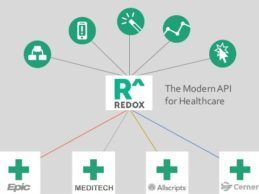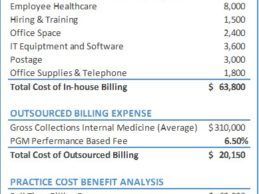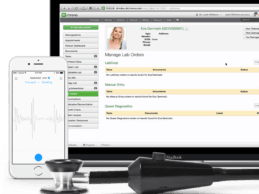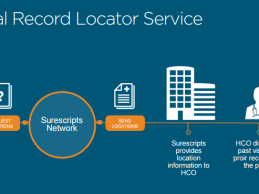Calling the measurement of interoperability a difficult area of study, DirectTrust has filed comments applauding the Office of the National Coordinator of Health Information Technology’s (ONC) initiative to develop metrics for electronic health information exchange and interoperability. At the same time, DirectTrust is urging ONC to begin the development of metrics in a “simple” manner, recognizing that further research will be needed as the interoperable exchange of health information among
Read More
Electronic Health Records (EHRs) | Electronic Medical Records (EMRs) | News, Analysis, Insights - HIT Consultant
Cisco Selects EHR Integration API Redox to Join Entrepreneurs in Residence Program
Redox, a health IT startup founded by former Epic engineers helping developers integrate with EHRs and health systems manage their connections to the cloud has been selected to join the Cisco Entrepreneurs in Residence (Cisco EIR) program in Silicon Valley. The company's mission is to solve the EHR interoperability problem with their RESTful API designed to help apps share data with almost any EHR vendor at any health system.The corporate venturing program allows emerging tech companies to tap
Read More
Report: Specialty-Driven EHRs on the Rise: 8 Trends to Know
8 in 10 independent physician specialty practices have re-affirmed their confidence in specialty-driven EHRs & robust multispecialty EHRs with well-constructed specialty modules, according to a new report from Black Book Market Research. The report surveyed 11,300 specialist surgical and medical practices in Q1/Q2 2016 finds that specialists are increasing replacing their current EHRs with flexible cloud-based & specialty-driven EHRs tailored to improve financial, workflow, clinical
Read More
Pontiac General Hospital To Implement Medsphere’s Open Platform EHR
Pontiac General Hospital, a 306 licensed-bed hospital has selected the Medsphere's OpenVista® EHR system for implementation to improve management practices and clinical workflows as they also grow clinical staff and expand available services. More than just an acute care facility, Pontiac General serves the surrounding community as a healthcare hub by offering services ranging from urgent care to family medicine to obstetrics. The hospital also has a mental health unit and offers 24-hour crisis
Read More
Amazing Charts Unveils End-to-End Revenue Cycle Management to Small Practices
The era of value-based care is setting in and providers need still need to ensure they receive every dollar earned while giving quality patient care. Small practices need to be diligent about financial processes as coding errors, etc. can result in revenue leakage. To meet this need, Amazing Charts, a provider of EHR and PM systems, announced a new revenue cycle management (RCM) service specific to independent physician practices powered by PGM Billing, a leader of medical billing services.Ideal
Read More
drchrono Integrates Heart & Lung Sounds into EHR for Clinical Documentation
Three companies have teamed up to integrate a patient's heart and lung sounds into the EHR for clinical documentation for the first time ever, representing a milestone in longitudinal patient care. The new partnership from Direct Urgent Care,Eko, and drchrono uses a quick three step process, clinicians can now seamlessly integrate heart and lung sounds into a patient's EHR. How It Works1. Direct Urgent Care, a Berkeley-based urgent care provider with 30,000 patients, enables providers to record
Read More
SSM Health Goes Live on Surescripts National Record Locator Service
Today, Surescripts announced that it has activated more than 10,000 SSM Health clinicians in Illinois, Missouri and Oklahoma on its National Record Locator Service, to locate patient records and obtain a more complete view of the health of a patient, regardless of where the patient received care.Imagine the scenario: you are visiting the Chicago area, and you fall ill and have to visit the ER at one of SSM Health’s many hospitals in the region. You’re too ill to properly remember your complete
Read More
5 Hospital Executives Share Advice on Building Successful Epic EHR Teams
The decision to buy and implement an Epic EHR is typically one of the largest strategic investments a provider will make, and much of the cost is an investment in people.A large-scale Epic implementation requires the significant hiring and training of hundreds of IT professionals to design, build, maintain, upgrade and optimize the EHR.Challenges of Hiring Epic ProfessionalsFor most providers, hiring quality Epic professionals at scale presents a number of challenges, especially in the highly
Read More
Tactio Taps Redox for EHR Integration With App-Enabled Remote Patient Monitoring
Tactio Health Group and API EHR integration provider Redox are teaming up to add EHR integration connectivity to its TactioRPM app-enabled remote patient monitoring (RPM) solution. The partnership will enable providers using TactioRPM to integrate app-enabled monitoring and patient engagement to their existing EHR system. Leveraging Redox's capability to integrate EHRs such as Epic, Cerner, athenahealth, McKesson, and GE allows for simplified monitoring for providers.This partnership also aligns
Read More
Ardent Taps Epic for Integrated EHR across Hospitals & Clinics
Nashville, TN-based Ardent Health Services has selected Epic as its strategic partner for a single, integrated EHR across all of its hospitals and clinics. The move will replace 80 information systems currently in use across all facilities in an effort to streamline its registration, billing, clinical applications, ehealth and population health initiatives. In doing so, Epic's EHR will provide caregivers with more time at the bedside to offer consistent, high quality health services and a
Read More










